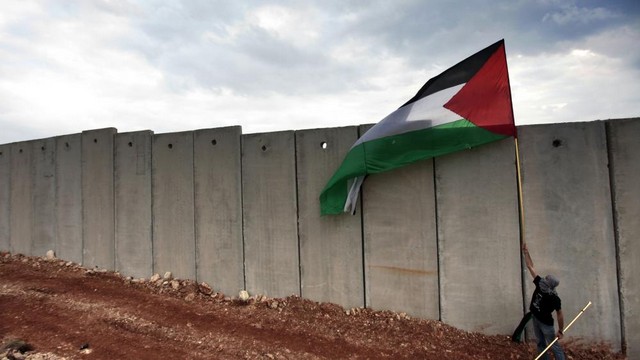By Ranjan Solomon
It has to be very hard to be a Palestinian and still find encouragement in actions that those from the outside refer to as signs of hope. To live through an occupation whose brutality is increasingly unrivaled cannot be easy.
In article by Neve Gordon in ‘The Nation’ (June 5, 2017), Gordon narrates the following episode: “During a Labor Party meeting that took place not long after the June 1967 war, Golda Meir turned to Prime Minister Levi Eshkol, asking, “What are we going to do with a million Arabs?” Eshkol paused for a moment and then responded, “I get it. You want the dowry, but you don’t like the bride!” This anecdote shows that, from the very beginning, Israel made a clear distinction between the land it had occupied—the dowry—and the Palestinians who inhabited it—the bride. The distinction between the people and their land swiftly became the overarching logic informing Israel’s colonial project. Ironically, perhaps, that logic has only been slightly modified over the past 50 years, even as the controlling practices Israel has deployed to entrench its colonization have, by contrast, changed dramatically.”
How else can one categorize and understand the Knesset renewal of the controversial “Citizenship and Entry into Israel” law? The law surpasses anything that asserts human rights law. It actually sets severe limitations on Palestinians in the occupied Palestinian territory married to Israeli citizens, for the 14th year. The law is an undisguised illustration of racism and an illustration of “apartheid” practices against Palestinian citizens of Israel. The law had significant support. (57 in favor: 16 against). The law, in the main, applies to Palestinians in the occupied West Bank and the besieged Gaza Strip, but it also brings under its purview and foreign nationals from Iran, Lebanon, Syria, and Iraq and can unilaterally pertain to other nationalities originating from countries the Israeli government considers a security threat.
A self-imposed siege that Israel has imposed can only last till it crumbles under its own weight. International resistance has not satisfactorily countered the levels of oppression by Israel. But there is no denying that with each passing day, resistance is mounting. BDS supporters are spreading far and wide. Israel is troubled by its potential to grow from a growl to a dangerous bite. The occupation is beginning to look and sound hideous by all standards.
And this is accompanied by courage as made visible in the recent prisoners strike. Palestinians have said “enough is enough” and the world is listening. Israel’s desperate bid to hold on to the occupation, and acquire more, is a last bid tactic before it falls apart. If South Africa could collapse so suddenly, so will Israel. The question is ‘how soon’. Time and patience are running out.
In this issue of Palestine Updates, we look at growing actions of international solidarity to the occupation and its aftershocks. Opinion makers are shifting public perception against Israel’s occupation in ways that make space for hope.
Do read and disseminate the news below. Do also join the campaigns for BDS. Every single voice and signature counts especially when you get one more person to join your struggle.
In solidarity
Ranjan Solomon
Editor
15 June 2017

